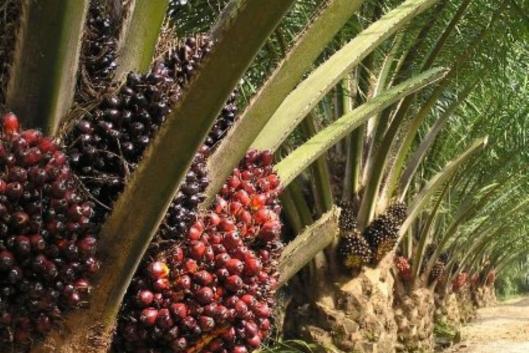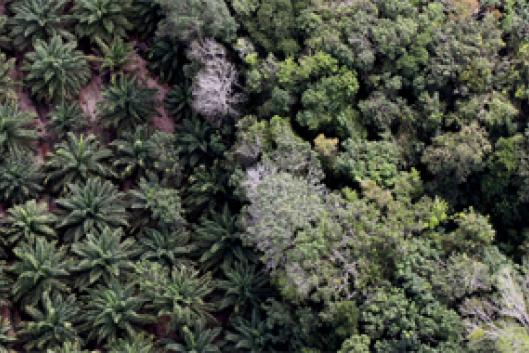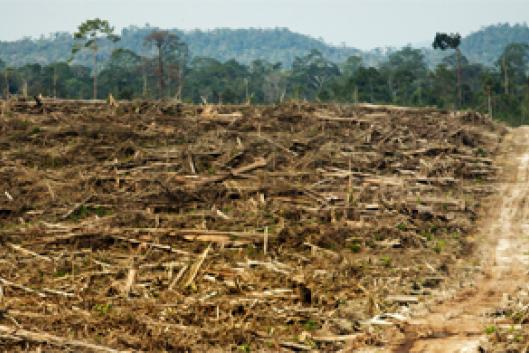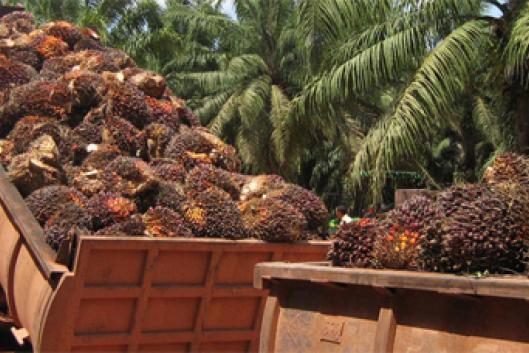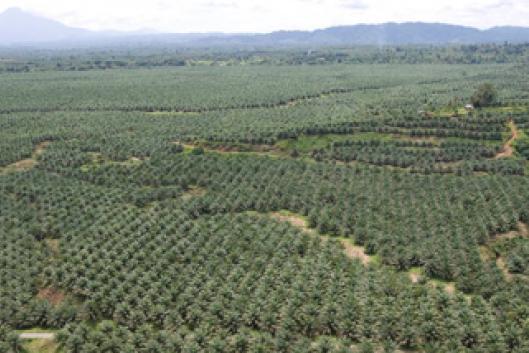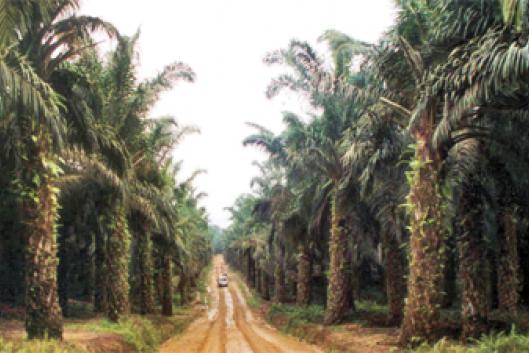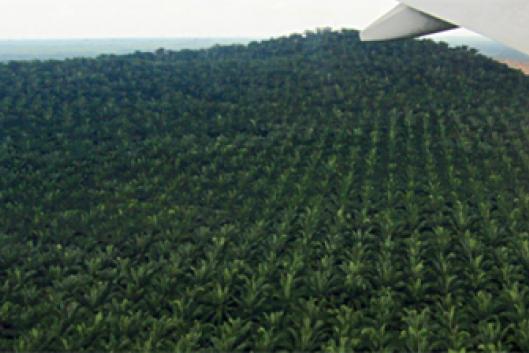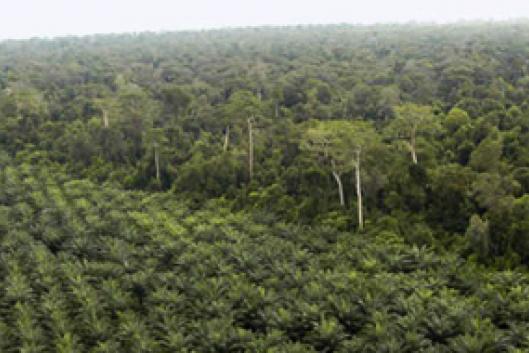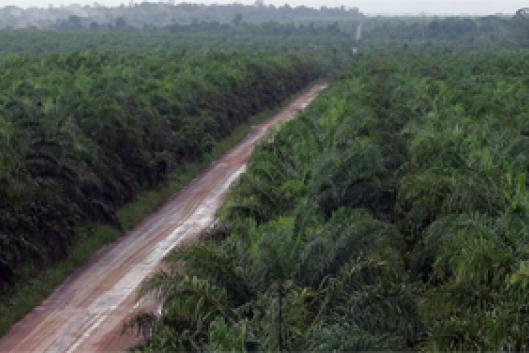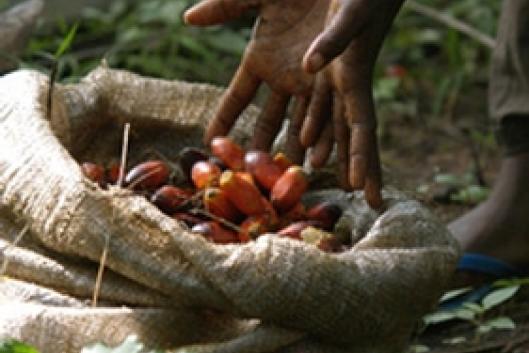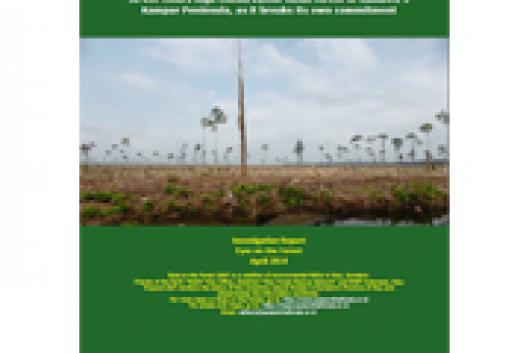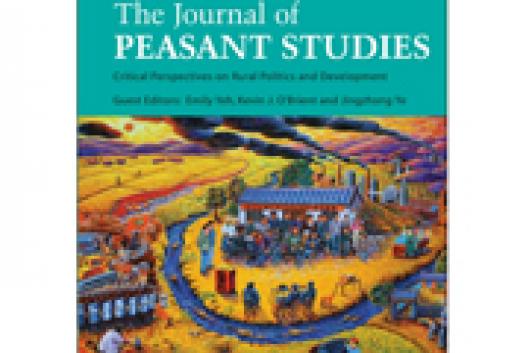In late 2013, a group of representatives of African, Indonesian and international NGOs met with members of La Via Campesina and the African Biodiversity Network in Calabar, Nigeria, to address the massive expansion of industrial oil palm plantations on the African continent and discuss, in particular, the situation in Nigeria, Sierra Leone, Liberia, Cameroon, Benin, Côte d’Ivoire, the Democratic Republic of Congo and Gabon.
Bulletin Issue 201 – April 2014
Greenwashing tools for the expansion of industrial oil palm plantations
WRM Bulletin
201
April 2014
OUR VIEWPOINT
GREENWASHING TOOLS FOR THE EXPANSION OF INDUSTRIAL OIL PALM PLANTATIONS
-
7 May 2014Industrial oil palm plantations have been expanding in many countries in the global South, increasingly in Africa and Latin America, invading territories of rural populations, indigenous peoples and traditional communities in order to produce palm oil for export or agrofuel for foreign markets. While the main benefits accrue to oil palm processing mills, private and state banks and investment funds, and national and transnational palm oil corporations, for hundreds of thousands of people the expansion or large scale oil palm plantations imply the destruction of their local economies as well as the natural conditions these economies depend on.
-
7 May 2014It does sound like a bit of a fairy tale. Multinational companies destroy forests and trample on human rights. Then, international environmental organisations come into play and transform the culprits into responsible companies within just a few months. Multinational palm oil, pulp and paper companies such as Wilmar, Golden Agri, APRIL (Asia Pacific Resources International Limited) or APP (Asia Pulp and Paper) have already completed the magic metamorphosis from destroyers to protectors of the Indonesian rainforest. All of these companies now sport a "zero deforestation policy".
-
7 May 2014The State Government of Sarawak has issued a provisional lease for an oil palm plantation scheme to Woodijaya Sdn Bhd, a subsidiary of Rimbunan Hijau Sdn Bhd on Lot 197 Teraja LD and Lot 1200 Puyut LD, both which are 4,658 hectares. The 60 year lease that was issued by the State’s Lands & Surveys Department encroaches on lands belonging to the Malays of Marudi and Ibans of Lubuk Amam.
-
7 May 2014With about 11.5 million hectares in 2011, Indonesia concentrates the biggest area of industrial oil palm plantations globally, followed by Malaysia with about 4 million hectares. This extensive use of land and the continued rapid expansion have provoked numerous conflicts between communities and the companies operating these plantations. Especially the devastating deforestation caused by the expansion of oil palm plantations in Indonesia and Malaysia has led to strong and sustained negative publicity for the companies in the “consumer” countries in Europe and the USA.
-
7 May 2014
Liberia – RSPO’s inability to address root causes of the conflict related to Sime Darby’s operations
One would expect that RSPO members also uphold RSPO principles and criteria when they expand their operations on the African continent, not least in order to prevent a repetition of negative PR experiences from Indonesia and Malaysia. One would expect particular caution in countries like Liberia, where longstanding unresolved land tenure issues and the trauma of a recent and long civil war have led a UN panel of experts to recommend the Liberian government place a moratorium on further land leases until the land tenure clarification in Liberia has been concluded.(1) -
7 May 2014Agropalma started its activities in 1982 and according to its website, has since grown to become “the main producer of palm oil in Latin America”. (1) Its oil palm plantations are located in the state of Pará in the Brazilian Eastern Amazon Region, with a refinery and mill in the port of Belém, the state capital. Agropalma is member of the “Palm Oil Innovation Group” (2), launched in June 2013 in Jakarta. The group, is a joint initiative of the NGOs Greenpeace, WWF, RAN and FPP, and Agropalma as well as other companies described by Agropalma on its website as “acknowledged leaders in socio-environmental innovations in this industry”.
PEOPLES IN ACTION
-
7 May 2014In the ejido (communal landholding) of Pichucalco, Montes Azules Biosphere, in the Lacandon Rainforest, delegates from the Montes Azules REDDeldía (“REDDellion”) Movement gathered from April 8 to 10 to discuss the issue of the inclusion of biodiversity and the traditional knowledge of indigenous peoples in the draft multinational free trade agreement known as the Trans-Pacific Partnership (TPP). The movement established three objectives:
-
7 May 2014Okomu Oil Palm Plc, the Dangote Group and United Food Industries Ltd representing Indonesia's Salim Group are to benefit from plans by the Edo State Government to allocate 410,000 hectares of forest land belonging to community people in order to establish large scale monoculture plantations. Only 30,000 will be left for the over 170,000 local farmers in the communities who earn their livelihood from farmlands and forest resources.
RECOMMENDED
-
7 May 2014APRIL clears high conservation value forest in Sumatra’s Kampar Peninsula, as it breaks its own commitment, is an Investigative Report of Eyes on the Forest, a coalition of environmental NGOs in Riau, Sumatra, which monitors the performance of APRIL, a pulp and paper company with a very bad reputation for its operation since 1995, as well as violations to its own commitment to protect high conservation value forest (HCVF).
-
7 May 2014The Journal of Peasant Studies is celebrating its 40th anniversary in 2013-14. Part of their series of initiatives to commemorate the anniversary of JPS is the publication of virtual special issues, starting with the 40 Classics in Peasant Studies. The second in the series is JPS 40: Peasants & Politics. This collection highlights some of the key articles that have been published in the journal over the past four decades on peasant politics. They launched it during the week of 17th of April to coincide with the International Day of Peasant Protest.
